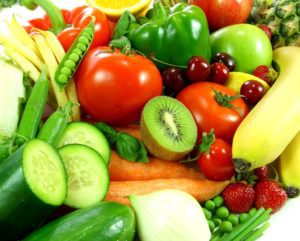
It takes 66 days to make progress on establishing a new habit. Given that many of us have been sheltering at home for about that long –What healthy and unhealthy eating habits have you been forming?
“I’ve gained 10 pounds since being stuck at home,” a friend told me recently. “Baking cookies with the kids has been a fun activity but it wasn’t part of the plan for me to eat so many of them.”
Everything about our lives has been disrupted during the pandemic so we shouldn’t be surprised that our eating programs and patterns may have suffered as well. A desire for “comfort food” and a supply chain difficulty in securing our usual go-to healthy items, (my green tea), have not been helping the situation. If there ever was a time when nourishing our bodies’ cells with healthy food mattered, this is that time. Our first line of defense against any illness is a healthy immune system, and that comes from what we eat and how our body processes what we provide it.
Fortunately, or unfortunately, except for some basic principles, my life has taught me that a healthy diet or eating program is not a one-size-fits-all endeavor. For most of my adult life, I’ve had food allergies or sensitivities, and the people I live with have had theirs. My husband is lactose intolerant, (unable to digest dairy products), related to the fact that his ancestors were Ashkenazi Jews. Had his ancestors been Black or Asian, or American Indian, he would likely suffer from the same difficulty, since this condition is common in those groups of people as well.
My Aunt Dote had an odd relationship with food. She only allowed herself to eat seven or eight items and, in spite of family members’ constant encouragement to “just taste it,” she refused to try anything not on her list. I became the Aunt Dote of my generation when, after multiple exposures to poison oak in my Texas backyard, I developed a hypersensitivity to Mexican peppers. One doctor suggested that to my immune system, peppers look a lot like poison oak and so it triggers an uncomfortable reaction. It took me a long stretch of being on what I called the “no flavor diet” to figure this out but after repeatedly experiencing the pain that resulted from eating a dish that contained peppers, I now make it a practice to steer clear of them.
The reports on who becomes a victims to Covid-19 demonstrate some things we’ve known – that age and pre-existing conditions lesson the effectiveness of a person’s resistance to becoming ill. The rare disease in some young children that is just being identified – an acquired immune response to COVID that activates an inflammatory process (in genetically susceptible children) reminds us that a too vigorous immune system is another way that disease is created.
Since Hippocrates advised his followers in 400 BC, we’ve known the best way to prevent and treat disease; “Let thy food be they medicine and medicine be thy food. Since western medicine has not studied the relationship of nutrition to the immune system, we must be guided by how our bodies react to what we are putting in them, or what we are avoiding putting in them. For me, while making sure I eat a variety of vegetables, limit servings of meat, and avoid sugar, I find listening to my own body’s reaction to whatever I eat helps me decide what foods are best for me. I’m not officially gluten intolerant, but I’ve noticed that when I eat more than a slice or two of bread and it’s not sour dough bread, I get a painful swelling in one or both of my big toes. This period of social distancing, with so much time at home in our kitchens could be a great opportunity to both stay with items in our diet that we know have worked well for us in the past, and, to try for the first time some things we’ve heard or read about that might help reduce inflammation or promote good digestion. We’re looking at Tumeric tea. How about you?
Offerings and Events
InterPlay On-Line – Friday mornings at 10:30 am https://zoom.us/j/3701856662?pwd=elZ3SU1MQmRYVDJZOTk5VzR3OWU4UT09 |


 Radical Self-Care While Physical Distancing Tuesday, May 19th 11:30am EST/10:30am CST/9:30am MST/8:30am PST
Radical Self-Care While Physical Distancing Tuesday, May 19th 11:30am EST/10:30am CST/9:30am MST/8:30am PST

